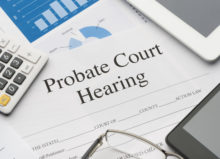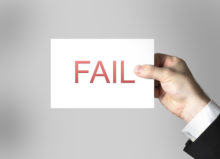Protecting Your Home – Part Two: Save Our Homes Act

Several years ago, a community of single-family homes was established in Southwest Florida. The community was small, arranged in a T-shaped pattern. A three-bedroom, two-bath home was one of the first houses built. Its back yard faced a pond, and the driveway opened onto the circle at the end of the street. A young couple purchased the home with a 30-year mortgage through their favorite bank.
Each month the couple made their house payment, which included their principal, interest, homeowner’s insurance, HOA fees, and property taxes. Over the next several years, as the property value in their home increased, so did their taxes. First taxes doubled, then tripled. Sadly, their salary did not double or triple, and they found it increasingly difficult to make ends meet.
It was this exact scenario that led to an amendment of the Florida Constitution. This amendment is commonly known as Save Our Homes. Working in conjunction with Homestead, Save Our Homes puts a limit on the Taxable Value of a home, therefore a limit on the taxes that must be paid.
How do I qualify?
The first, and most important factor, is that property must be the residence of the applicant and the applicant must have homestead status. This means that vacant land, non-residential property, agricultural property, and tangible personal property do not qualify for the Save Our Homes protection.
How does it work?
The first year that the property obtains homestead status, the property is assessed at the full market value. However, the property enjoys tax savings in subsequent years. This tax savings is in the form of a cap that prevents the Taxable Value of your home from increasing more than 3% per year. Because of that cap, every year you enjoy the protection of Save Our Homes, your total savings increases. After you have owned your home for 10 or more years, you could be saving several thousand dollars each year. In addition to the tax cap, you could qualify for a $25,000/$50,000 exemption amount which reduces your Taxable Value even further. Finally, there are additional exemptions for widows, veterans, and others.
Does the protection transfer?
It depends. In general, any change in your deed will most likely result in loss of Save Our Homes protection. But there are a few exceptions.
First, Save Our Homes is portable. Imagine the Smith family owns House A, and their property has qualified for Homestead and Save Our Homes (SOH) protection for the last ten years. Now it is time to move. The White family, from out of state, will buy House A. The Smiths will move to House B in another Florida city. The Smiths can take their SOH protection and move it from House A to House B. But House B must achieve homestead status within one year. The White family did not have homestead status and did not have SOH protection because they came from out of state. That means House A isassessed at the full market value. However, the White family can qualify for homestead and the SOH protection and can cap their value going forward.
Second, Save Our Homes is not inheritable—usually. There are two exceptions. (1) A surviving spouse can retain the existing SOH cap, even if the spouse was not previously on the title. (2) If a person inherits a property, and that person was permanently residing on the property at the time of the decedent’s death, and was also a dependent of the decedent, they can retain the SOH cap. However, outside of those two exceptions, the value resets to market value once the owner dies.
How does a Trust affect the Save Our Homes protection?
If done correctly, property currently in a trust or property transferred into a trust does not disrupt the SOH protection. When creating a new Trust, or transferring your home into your Trust, your attorney must meet all of the requirements to retain your Save Our Homes protection.
Home Sweet Home
The Save Our Homes protection is a benefit to homeowners in Florida. If you think you qualify, take advantage of it!
























